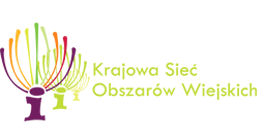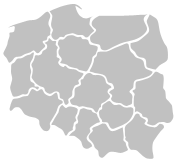Conference of the National Council of Agriculture Chambers – Spała, 18 September 2010
The National Council of Agriculture Chambers organised a conference entitled Polish agriculture in the new EU financial perspective in the context of production and environment, held on 18 September 2010 in the cinema room of the Olympic Sports Centre in Spała. The conference was financed from the pool of funds under Scheme 3 of RDP Technical Assistance 2007-2013, included in the National Rural Network Action Plan 2010-2011. The conference was a step towards implementing the National Rural Network Action Plan 2010-2011 in its part comprising Priority 1 Identification and analysis of good practices in rural development that can be transferred, and transmission of information thereon under Measure 2 Organisation of national conferences, seminars, workshops and meetings to exchange experience, as well as disseminate best practice and knowledge on rural development and scientific analyses.
The conference was opened by Wiktor Szmulewicz – President of the National Council of Agriculture Chambers. The conference was dedicated to the Common Agricultural Policy past 2013, as well as to good agricultural practice for environmental protection, the prospects for Polish dairy production, and a new definition of less-favoured lowland areas.

In the photo: Wiktor Szmulewicz opening the conference
Four major issues were touched upon during the conference. The first address, on the future of the Common Agricultural Policy past 2013, was delivered by the President of the National Council of Agriculture Chambers, who made a reference to the session of COPA-COGECA Committees, held on 16 September 2010, where CAP was mentioned. He discussed the assumptions and initial proposals of the Polish Government on the vision of CAP past 2013, and then presented the position of the National Council of Agriculture Chambers’ Board on the issue: CAP should meet the new challenges faced by European farmers, in line with the needs and wishes of the EU citizens, while the budget after 2013 must remain at least on the current level. Direct payments are an important mechanism to stabilise the income of farmers. CAP should cover a wide selection of tools for development, established under the second pillar.
The next speaker was Assistant Professor Janusz Igras, PhD from the Institute of Soil Science and Plant Cultivation of the Puławy State Research Institute who delivered a speech on “Good agricultural practice for environmental protection in view of climate change.” The Professor focused on the basic issues of managing agricultural environment, as well as on recognition and evaluation of natural conditions of agricultural production, on soil protection and land reclamation, on evaluation of agri-chemical soil condition in Poland, and on establishing the rules for sustainable management of nutrients. He also talked about the challenges faced by the Institute of Soil Science and Plant Cultivation in managing natural environment.

in the photo: B. Pomianek delivering his presentation
The conference was attended by two representatives of the Ministry of Agriculture and Rural Development, namely Paweł Pacek – Deputy Director of the Department of Rural Development for cooperation with self-governments and Leader, and Bogdan Pomianek – Head of the Analyses Division of the Department of the European Union and International Co-operation, who jointly delivered a lecture on changing the criteria in establishing less-favoured areas (LFA) in terms of possible variants and their impact on Polish agriculture. The presentation included a description of the currently binding criteria in Poland, as well as of changes in them in line with the assumptions of the 2010 LFA instrument reform, to account for environmental protection aspects. The speakers also explained the reasons behind those changes. In addition, the proposals of European Commission for possible scenarios of changes in criteria were discussed, as well as the consequences for Poland of changing the criteria for delimiting LFA. Poland's opinion in the discussion on changing the criteria was presented, and the next steps to eb taken in the work on the LFA reform were discussed.
The last speaker, Mr Sławomir Stepulak, a dairy market expert who works for the Foundation of Assistance Programmes for Agriculture (FAPA), delivered a paper on the “Prospects and future of Polish dairy production in the context of liquidation of the milk quota scheme.” He discussed the role of dairy sector in Poland, as well as the problems it faced prior to the EU accession, and the benefits resulting from it. Mr Stepulak also presented a range of quota related issues, such as the level of their use; he also discussed the situation in milk quota trade. He continued with describing the position of Poland as the producer of eggs and dairy products as compared to other EU countries, and then presented the level of dairy product consumption. Summing up, he talked about the chances and challenges faced by Polish dairy market under the new CAP financial perspective. The conference was attended by representatives of voivodeship agricultural chambers from entire Poland, and by delegates from poviat councils of Łódzkie Voivodeship. The majority of questions posed by the attendants concerned less-favoured areas. The participants evaluated the conference as highly significant.
 The conference was co-financed by the National Rural Network from funds administrated by the NRN Central Secretariat.
The conference was co-financed by the National Rural Network from funds administrated by the NRN Central Secretariat.












